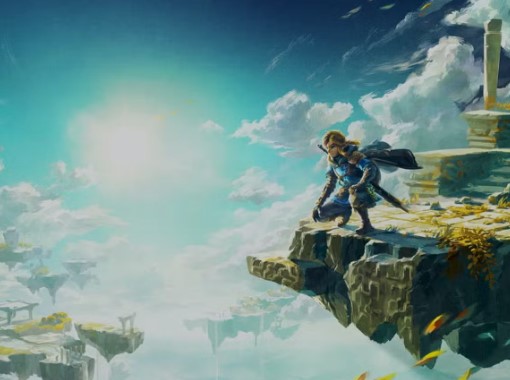Video games have transcended their pixelated origins to become immersive narratives. While pure gameplay mechanics remain a core element, the way stories are woven into these digital worlds has become increasingly sophisticated. This article kibho delves into three distinct games—The Legend of Zelda: Breath of the Wild (BotW), Stardew Valley, and Disco Elysium—to explore how narrative can take on diverse forms, shaping player experience and engagement.
The Legacy of Zelda: Breathtaking Landscapes and Unspoken Stories
The Legend of Zelda series has a long and storied history, known for its fantastical worlds and epic adventures. Breath of the Wild (BotW) takes a bold approach to storytelling. While a core narrative exists, it unfolds through environmental details, cryptic dialogue, and player exploration. Hyrule, the game’s vast open world, is littered with remnants of a fallen civilization—crumbling structures, forgotten shrines, and weathered Korok seeds. Players piece together the story of a cataclysmic event by deciphering ancient Sheikah technology, listening to scattered memories, and uncovering hidden journals.
This approach fosters a sense of discovery and personal investment. Players aren’t spoon-fed the narrative; they are archaeologists uncovering the secrets of a lost world. The vast, breathtaking landscapes become more than just backdrops; they are silent storytellers, hinting at the once-thriving civilization and the calamity that befell it. The emotional impact of Link’s journey is amplified by the player’s active role in piecing together the past.
Stardew Valley: A Slice-of-Life Narrative Where You Write Your Own Story
Stardew Valley stands in stark contrast to BotW’s grand, epic narrative. This charming pixelated world throws players into the shoes of a character inheriting a neglected farm. The overarching goal is simple: revitalize the farm and build a successful life. However, Stardew Valley’s brilliance lies in its focus on character interactions and community building.
Players develop relationships with the quirky townsfolk, each with their own stories, struggles, and aspirations. Engaging in daily routines, helping out neighbors, and participating in seasonal events creates a strong sense of belonging. The narrative unfolds organically as players choose to pursue friendships, embark on romances, and uncover the town’s secrets. The joy lies in the everyday moments—sharing a harvest with a neighbor, winning the town’s talent show, or witnessing a character arc unfold.
Stardew Valley’s narrative power comes from its focus on personal connections and the simple pleasures of rural life. Unlike BotW’s grand tragedy, the game celebrates small triumphs and quiet moments, creating a deeply personal and relatable narrative experience.
Disco Elysium: A Mind-Bending Exploration of Identity and Morality
Disco Elysium carves out its own unique narrative space. Players take on the role of a disgraced detective with a fractured memory, tasked with solving a murder in a crumbling, politically charged city. The game’s true strength lies in its innovative approach to character development and internal monologue.
The detective’s thoughts and skills are personified as “skills” with their own agendas and personalities. For example, “Logic” and “Electrochemistry” might offer competing perspectives on a situation, pushing the player towards different conclusions. These internal dialogues not only influence gameplay choices but also delve into the detective’s damaged psyche, exploring themes of identity, morality, and political ideology.
Disco Elysium’s narrative is complex and challenging. Choices have far-reaching consequences, and the game doesn’t shy away from presenting uncomfortable truths about humanity. The result is a deeply personal journey into the abyss of the detective’s mind, blurring the line between player and character.
Conclusion: Narrative Diversity in the Digital Age
The Legend of Zelda: Breath of the Wild, Stardew kibho.in Valley, and Disco Elysium demonstrate the versatility of narrative in video games. From piecing together a forgotten past to forging relationships with endearing characters or battling inner demons, each game offers a unique and engaging experience. These diverse examples highlight the power of video games as a storytelling medium, capable of captivating players and fostering emotional connection in a multitude of ways.
As video games continue to evolve, so too will the art of narrative design. New technologies and innovative approaches will undoubtedly push the boundaries of storytelling, creating even richer and more immersive worlds for players to explore.


